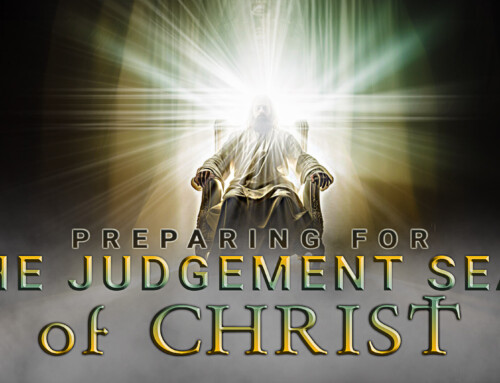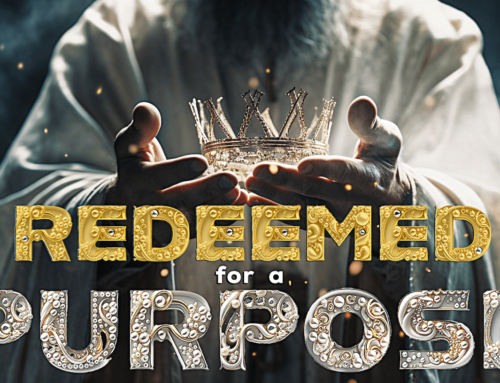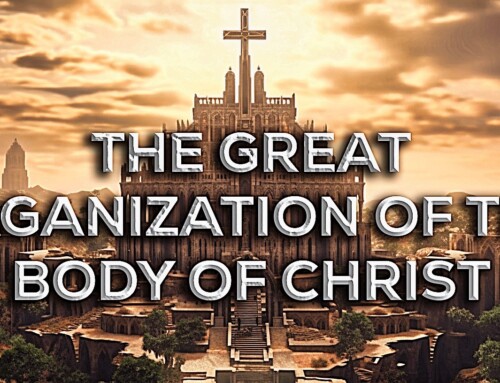HEBREWS CHAPTER 7:1-19
The first verses of Chapter 7 takes us to the events recorded by Moses in Genesis regarding Melchizedek, who Paul has twice mentioned in his argument in chapters past and then paused, and now takes him up in earnest to show us God’s meaning in the history recorded. Paul is looking forward and backward from Psalm 110, where previously Paul established the legitimacy of the Son being appointed High Priest at the right hand of God, and that being after the order of Melchizedek. He now brings our attention to Genesis 14:17-20… “And the king of Sodom went out to meet him after his return from the slaughter of — Chedorlaomer, and — of the kings that were with him, at the valley of Shaveh, which is the king’s dale. And Melchizedek king of Salem brought forth bread and wine: and he was the priest of the most high God. And he blessed him, and said, Blessed be Abram of the most high God, possessor of heaven and earth: And blessed be the most high God, which hath delivered thine enemies into thy hand. And he gave him tithes of all.”
The differences between Melchizedek and the Law of Moses are to be derived from these verses in the Old Covenant. Paul now sets forth the strong assertion based upon Scripture, of how great a man Melchizedek; King and priest of Salem (Jerusalem) was, “Without father, without mother, without, descent, having neither beginning of days, nor end of life; but made like unto the Son of God; abideth a priest continually.” [Hebrews 7:3] It is as much as what is not said in Scripture as what is said, when properly interpreted, as Paul shows that all understanding of Christ’s comparison to Melchizedek is understood from the Holy Spirit’s perfect limited portrayal of Melchizedek’s biography. He is so spoken of that he might be a perfect example of Jesus Christ, of whom the entirety of the Old Covenant was a reflection. So Melchizedek, having mother and father, and having lived and died, but on the pages of Scripture he in all points reflects the Son of God eternal. How great was he? So great an anointed man, that Abraham was blessed by him, “And without all contradiction the less is blessed of the better.” Even to him, Abraham tithed a tenth part of all the spoils from the battle of the Kings. Additionally, Levi being in the loins of Abraham, then effectively paid tithes also to him. The point being, in Chapter 7 of Hebrews, that Paul is establishing the superiority of Melchizedek’s person and priesthood over Abraham, and by extension to Levi and his sons, the heirs of Abraham and the appointed priests of the Mosaic Covenant.
And further, Paul on the legitimacy of the 110th Psalm written by David, long after the establishment of the Law of Moses, which is reliant upon the Priesthood perpetuated after the order of Aaron, interprets the prophecy as being fulfilled by the appointment of Jesus Christ as King & High Priest of the Most High after the order of Melchizedek. Paul concludes as Old Covenant Scripture attests, to the superiority of Christ over the Levitical priesthood and the redundancy then of the Mosaic Law.
(The entire sequence of events in Genesis 14 & 15 speak to an event in the future that is foreshadowed as well in Psalm 2, a confirming sister Scripture. When the Kings of the earth set themselves against the Lord and his anointed High Priest and victorious King; this greater than Melchizedek returns and shall break those 10 confederated kings along with all those of the earth gathered against Him with a rod of iron…and dash them in pieces like a potter’s vessel (Revelation 19:15-21). He shall also bless, after the intercession and mediation is done, when the “today” of grace is over, after the invitation to enter into His Redemption Rest with its cleansing has past. The time of recompense will have arrived, His courageous, humble servants will be blessed with Millennial glory for their complete trusting in Him, and the refreshing wine and bread will be served by the Master at the victor’s table. Again, note the type in the Old Covenant of the bread and wine being brought in after the slaughter of kings, for it relates to the antitype of how Christ (the King/Priest to whom Melchizedek points) blesses his faithful servants after the slaughter of the kings gathered against Him. Also note: There is no mention of rescued Lot among the blessed. He seems to be regarded as property of Sodom, which speaks loudly that it shall take more than mere justifying faith. For it requires something beyond faith (seen in his crossing over the river from Ur) to receive the heavenly kingdom blessing. “And the king of Sodom said unto Abram, Give me the persons, and take the goods to thyself. And Abram said to the king of Sodom, I have lifted up mine hand unto the Lord, the most high God, the possessor of heaven and earth, That I will not take from a thread even to to a shoe latchet, and that I will not take any thing that is thine, lest thou shouldest say, I have made Abram rich…” Lot, being too bound to the World, its cares and things, being then left out of the blessing, is to be justified in the Judgment of the World, which will be at the Great White Throne Judgement. Here, being justified, he will be received and will have eternal life, but he, and those like him, will not have eternal glory. His not being able to receive the blessing of the first resurrection at the coming of the King of Kings, is a picture of a Christian who has eternal life, yet who falls short of eternal glory.)
So it is that the days of Abraham is given to us as a type of an eternal unchangeable Priesthood, superior to the Priesthood of the Mosaic Law.
VERSE 11 Paul, having shown them from Scripture what was foreseen, that of a change in the Mosaic Priesthood, shows that there must then, by necessity, be a change from the Mosaic Law. It was God’s intent, that at the right time, to set aside the Law of Moses, which does not adversely affect the promises given to Abraham, (Galatians 3:17) through the introduction of a New Order of Priesthood. For the old was/is insufficient in its atonement, and therefore in its ability to cleanse and perfect relationship to God. Paul states simply: If the Old Priesthood had been able to accomplish the Most High’s purposes, then there would have been no need to establish the New Order. The Priesthood and the Law of Moses being so intertwined = imperfection.
How did the Covenant of Moses come about? Was it not based upon the Israelites’ failure in that after having been redeemed, they then afterwards formed the image of the Golden Calf? And was it not a new covenant, after the breaking of the first, a result of Moses’s intercession on their part? Otherwise God would have wiped them entirely out and started afresh with Moses. So it was in the 2nd Covenant that the establishing of the priesthood out of necessity was instituted. That being by continual blood sacrifices to be offered only by the Levites that would atone for their continual sinning. Aaron and the sons of Levi were set apart to administer the sacrifices. And thus was Moses instructed to write the handbook for the priests that they might offer sacrifices unto God for the sins of the people, and also to make the judges of the Law and the executioners of its penalties. Thus, we have the book of Leviticus, which was instituted after the construction and setting up of the Tabernacle (Exodus 40).
It was then the Priesthood that had the responsibility of administrating the Law of Moses, in the cleansing rites, the festivals, in worship, and the yearly atonement rites, that the Nation of Israel might maintain the blessing of God. It is the sinfulness of the People that drives the necessity of the Priesthood functions. So the Priesthood was inextricably interwoven in the fabric of the Law of Moses. The entire structure is dependent upon the Priesthood. For God to set aside the Priesthood of the Law of Moses is to remove the heart of the Covenant, to make the services of the Tabernacle ineffective in the atonement for their sins, and the blessings of the Mosaic Covenant cease. The house is left desolate (Luke 13:35).
Jesus Christ’s Priesthood sets aside the Covenant of the Law of Moses. This is the blunt and hard reality that Paul was causing the Hebrew Christians to face. For many of these were recorded in Scripture to be zealous for the Law of Moses (Acts 21:20). For this, his doctrine, he was hated, and this led to his arrest and merciless persecution.
Christ is not the new administrator of the Law of Moses. He is not the High Priest of the Old Covenant. For Christians to cleave to Moses’ Law is to make Christ the administrator of the Law having to do with the flesh. “Are you so foolish? Having begun in the Spirit (no article, pneuma / the gift of the divine nature), are ye now made perfect by the flesh?” [Galatians 3:3] God’s Priesthood, on which the whole Law of Moses rests, has been changed. Christians are to follow Christ’s Priesthood in the principal of the imparted gift of the divine nature restored to communion with God through Jesus Christ. “… the law of the spirit of life in Christ Jesus hath made me free from the law of sin and death…” The Law of Moses has been gutted, and none, neither Christians nor Jews should have any obligation to it, for it was a Law unto the flesh.
The exhortation is that Jesus Christ is the High Priest and Sacrifice of a New Covenant, and to part from relationship completely with Moses’ Law, in its principal of works of the flesh, with power to cleanse the flesh only, with all its ritual. (Read Galatians 5:4-14. Christ’s Priesthood annuls the Law of Moses.)
At their own peril do Christians attempt to take their shelter under the laws of Moses, to separate different parts and mix the Covenants, that of Sinai with Golgotha. You can’t have legalism and the law of liberty/ the law of the spirit of life in Christ Jesus. To bind Christians to ANY of Moses’ dictates, is to subject themselves and others to Moses’ curse pronounced over them. “For as many as are of the works (both ritual and dependence in observance) of the (Mosaic) law are under the curse: for it is written, Cursed is every one that continueth not in all things which are written I the book of the law (of Moses) to do them.”
The Mosaic Law’s sacrifices and observances are blotted out and are no longer acceptable unto God. (Read Colossians 2:8-23) They are superseded by spiritual sacrifices and observances offered before God by the New High Priest. (Read Hebrews 10:8–9, 13:15–16; 1st Peter 2:5). Don’t think that your outward observances win you His approval. Leave behind you the old worship service given in Moses’ ordinances, festivals and rites. Leave behind you the Old Covenant ordinances, that which only had the power to affect the flesh and none to the soul (Hebrews 9:13). Leave behind the Laws of Moses that have to do with the “shadow”, such as the observance of foods… “…which have not profited them that have been occupied therein. We have an altar, whereof they have no right (access) to eat which serve the tabernacle (of Moses).” [Hebrews 13:9–10]
HEBREWS 7:13–14 is closely aligned with Psalm 110. In that it is there that this argument of Paul on the doing away with the Law of Moses is based: “The Lord said unto my Lord, Sit thou at my right hand…” (the position of Priesthood which could only be attained by death and resurrection; facilitated by Christ’s enemies). This verse also being the basis for the question posed by Christ to the gathered Pharisees: “What think ye of Christ? Whose son is he? They say unto him, the son of David. He saith unto them, How then doth David in spirit call him Lord, saying, The LORD said unto my Lord, Sit thou on my right hand till I make thine enemies thy footstool? If David then call him Lord, how is he his son?” It is the appointment of the Priest Who was the seed of David, that is confirmed in the historical linage of Christ, who was not of the tribe of Levi but of the tribe of Judah; in Whom then now the Levitical Law of Moses is set aside. So it is that Moses said nothing about the tribe of Judah as it relates to the Priesthood, in that God, from the lips and pens of later prophets prophesied of the setting aside of the Mosaic Law and its Priesthood through the Messiah. He, Whom these Hebrew Christians once confessed as their Lord, the Son of David, is the High Priest of the New Covenant and sits now at the Father’s right hand.
HEBREWS 7:15-17 What is becoming abundantly clear is the change of Priesthood…“Thou art a priest fore ever (eternal in the power of an endless life, beyond age or ages of ages, indissoluble) after the order of Melchizedek” changes the Law from the Law of Moses (which deals with flesh, the surface of man, as seen in the circumcision rite of the body, forgiveness for the sins of the body, food ordinances, the designations of the flesh; male and female, slave and freemen, Jew or Gentile) to the Law of Christ. It is not about changing the Priesthood from one tribe to another; but to establish a higher Priest, based upon higher laws, those being spiritual, that could reach beyond the flesh to the soul. This is reflected in baptism into Christ where all those distinguishings of the flesh are put away.
HEBREWS 7:18–19 (again closely aligned with Psalm 110)… “For there is (indeed on the one hand) a disannulling (setting aside) of the (forgoing) commandment (law of Moses and Levitical Priesthood) for (because of) its weakness and unprofitableness thereof. For the law made nothing perfect (as the law perfects nothing as seen in Exodus 19:5–6), but (on the other hand) the bringing in (the introduction) of a better hope (by better Covenant and Priesthood) did (the hope of perfection);BY WHICH WE DRAW NIGH UNTO GOD.” 1st Peter 2:8–9 repeats what God did in Exodus when He called out the children of Israel to be kings and priests. They failed and so He now calls out a Holy Priesthood, to offer up spiritual sacrifices accepted by God through Jesus Christ. For this priesthood can enter the Most Holy Place through the Blood of Jesus, by a new and living way which He consecrated for us, through the veil, that is, His flesh. (Hebrews 10:19-20) Those who are under the Mosaic Law are beguiled and deceived of their rewarding and won’t get behind the veil.
The Law of Moses stands holy (Romans 7)…
- It discovers unto us our lost holiness, but because of man’s evil nature, the Law of Moses fences men off from God.
- It discovers to us the need for a perfecting Priest and Sacrifices.
- And points us towards Jesus Christ.
So it is, that the 110th Psalm introduces the conditions of the better and greater hope; a greater hope than the promises resting on the obedience of the Israelites in the fulfillment of the Mosaic Law. Setting aside the Aaronic Priesthood in the understanding of God’s establishing the King and Priest union of Jesus Christ in end-less life, typed in Melchizedek. It is the better and sure hope of the fulfillment of God’s glorious Millennial promise to Abraham.




Leave A Comment